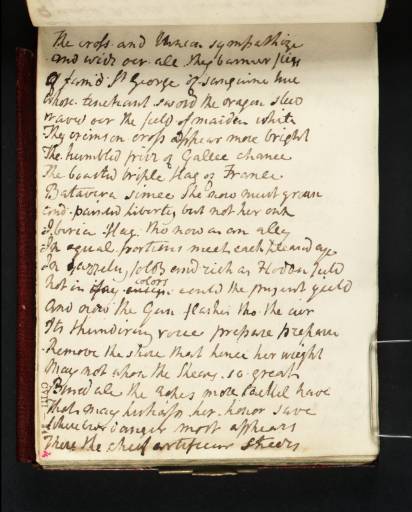The cross and Union sympathize
And wide oer all thy banner flies
Of fam’d St George of sanguine hue
Whose tenchant sword the dragon slew
Waved oer the field of maiden white
Thy crimson cross appear more bright
The humbled pride of Gallic chance
The boasted triple flag of France
Batavia since she now must groan
And painted Liberty but not her own
Iberia flag tho now as an ally
In equal portions meet each pleased eye
In dazzeling folds and rich as Flodden Field
Not in gay [overwriting ‘its’] <ensign> [‘colors’ inserted above] could the pagent yield
And now the Gun flashes tho [sic] the air
Its thundering voice prepare prepare
Remove the shore that hence her weight
May not upon the Shears so great
Bind all the Ropes more tackel have
That may perhaps her honor save
Where ever danger most appears
There the chief artificer steers
1
